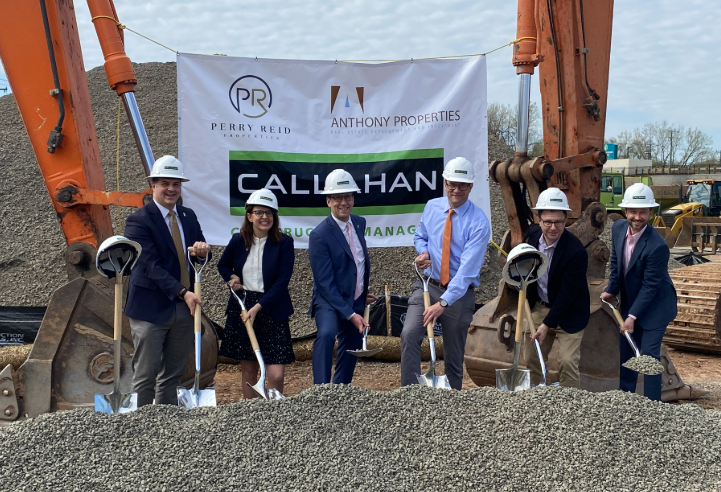News: Connecticut
Posted: June 17, 2010
SB-13 signed into law - A major victory for Conn. Chapter A.I.
On May 18, 2010, Connecticut Governor Jodi Rell signed into law Public Act No. 10-77 "An Act Concerning Real Estate Appraisal Management Companies" (Substitute Senate Bill No. 13). This was a major victory for the members of the Connecticut Chapter of the Appraisal Institute, as well as homeowners, borrowers, and lenders. The bill passed both the Connecticut State House and the Senate with unanimous approval after numerous drafts and revisions that took nearly a year to formalize. By signing this act, Connecticut joined the ranks of 17 other states that now have state legislation to regulate real estate Appraisal Management Companies (AMCs).
The effort would never have been possible if the Connecticut Chapter of the Appraisal Institute did not have the involved support of the Department of Banking, Department of Consumer Protection, Attorney General, Connecticut Association of Realtors, Connecticut Homebuilders Association, Connecticut Bankers Association, Connecticut Real Estate Appraisal Commission and several independent groups concerned about this issue. Special recognition goes out to member Ralph Biondi who led the efforts of the Chapter's Political Action Committee and Michael Martone of Murtha Cullina LLP who guided our way through the complicated political legislation process.
During the legislative process, there were three key legislators that stepped forward to make sure everyone who had an interest in this bill was heard, and to essentially hand carry our bill through the process. These were state senator Joe Crisco, representative Steve Fontana from New Haven and representative Lonnie Reed of Branford. All three of these respected public servants have been invited to Connecticut Chapter of the Appraisal Institute's June dinner meeting to celebrate the passing of Public Act No. 10-77 (please see the Appraisal Institute web site for details at www.ai-ct.org).
In 2009, the Home Valuation Code of Conduct (HVCC) was adopted with honorable intentions, requiring residential appraisals to be ordered by an independent third party to the lending transaction; these were called Appraisal Management Companies or AMCs. Unfortunately, there were unintended consequences as a result of this regulation that had an adverse impact on the collateral review function of the lending process - a critical part of loan quality for the consumer, the underwriting institution and also the end investor who is the source of funding that provides liquidity to this large segment of our economy. Until Public Act No. 10-77, this was the only part of the residential mortgage lending function that was not regulated in Connecticut.
Some of the highlights of Public Act 10-77 include:
* Appraisal Management Companies operating in Connecticut must register with the Connecticut Department of Consumer Protection.
* Each AMC must have procedures in place to hire only licensed real estate appraisers in good standing.
* Each AMC must demonstrate a review process to make sure appraisals are being conducted in accordance with the Uniform Standards of Professional Appraisal Practice (USPAP).
* Requires disclosure to a client prior to providing, or along with the appraisal report, the dollar amount of total compensation to be paid to the appraiser and the amount retained by the AMC from the total appraisal fee(s) paid by the client.
* No AMC may prohibit, or attempt to prohibit, an appraiser from including or referencing in an appraisal report the appraisal fee or the name of the AMC.
* No employee, owner, controlling person, director, officer or agent of an AMC may intentionally influence, coerce or encourage or attempt to influence, coerce or encourage, an appraiser to misstate or misrepresent the value of a property. These actions include threatening to withhold timely payment, threatening or withholding business, and express or imply promises for future business or higher compensation.
* No AMC may remove an appraiser from an appraisal panel without prior written notice and the AMC must provide the appraiser with an opportunity to respond to any such notice.
One of the most important items included in PA 10-77 is section 4-4(b), which requires that the person reviewing an appraisal of a property in the state of Connecticut, regardless of where the reviewer is located, must have an appraisal license or certification in good standing. This pertains to any reviewer involved in the formulation of opinions of values, comments about the appraiser's data collection, analyses, opinions, conclusions, valuation or compliance with USPAP.
Though HVCC has impacted many appraisers, particularly those who elect to focus on the residential mortgage section of the appraisal industry, in hindsight, HVCC caused one very positive change to the appraisal profession as a whole. One can easily search the internet to find a host of "war" stories caused by the initiation of HVCC, not just stories from residential appraisers, but also real estate agents, lenders, and home owners - all essentially consumers who rely on a credible opinion of value to make their business / investment decisions. The bright spot is that HVCC revealed many of the negative tactics, tricks, and manipulative unprofessional practices that professional appraisers have been dealing with for decades. Public Act No 10-77 "An Act Concerning Real Estate Appraisal Management Companies", gives Connecticut appraisers, through the timely efforts of the Connecticut Chapter of the Appraisal Institute, a new formal tool to stand up to these unethical ploys.
John Galvin of Andrews & Galvin Appraisal Services, LLC is president of the Connecticut Chapter of the Appraisal Institute.
Tags:
Connecticut
MORE FROM Connecticut
Highcap Group brokers $41.1 million sale of two building multifamily portfolio
Norwalk, CT Highcap Group has completed the sale of two luxury multifamily properties with a total of 120 units for a combined purchase price of $41.4 million.







.png)
